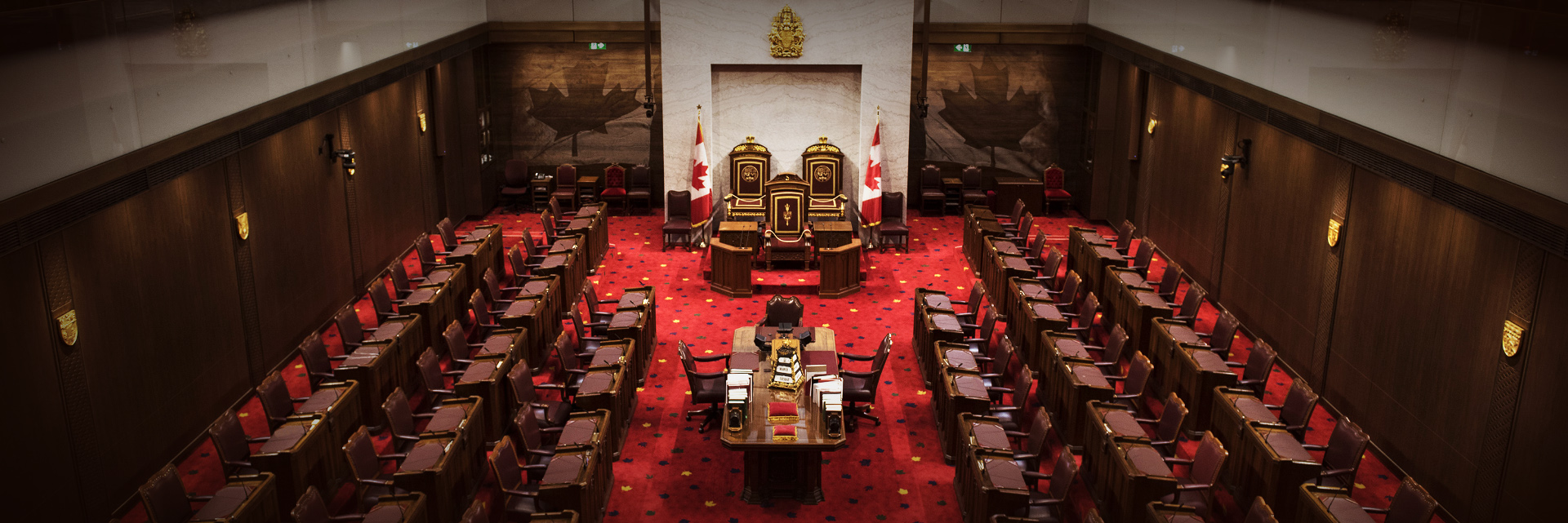
Appropriation Bill No. 1, 2024-25
Second Reading
March 22, 2024
Moved second reading of Bill C-68, An Act for granting to His Majesty certain sums of money for the federal public administration for the fiscal year ending March 31, 2025.
She said: Honourable senators, I rise to speak as sponsor of the appropriation act for interim supply for the 2024-25 Main Estimates.
Through this appropriation bill, the government is requesting Parliament’s approval of a portion of the planned spending shown in the Main Estimates for the coming fiscal year.
Appropriation bills are an integral part of the estimates process. They serve as the vehicles through which payments from the Consolidated Revenue Fund are authorized by Parliament.
The federal government delivers a vast array of important programs and services to Canadians across the country, and it is focused on doing so prudently by ensuring that taxpayers’ money is directed toward the highest priorities, such as affordability, dental care and a green economy.
Spending plans must be approved before any new money is spent. It’s one of the most fundamental responsibilities we have as parliamentarians.
As honourable senators may know, the House of Commons has until June to study and approve the Main Estimates. But, of course, the fiscal year starts in just a couple of weeks, on April 1.
To address this gap, the government introduces an interim supply bill in March, which provides funding for the first three months of the fiscal year. That’s what we have before us now.
This year’s Main Estimates present a total of $449.2 billion in budgetary spending — with $191.6 billion to be voted on. For most departments, interim supply represents one quarter of the total voted authorities set out in the Main Estimates. The current bill seeks approval for spending in the amount of $74 billion. This does not include any new initiatives which could be announced in Budget 2024. Those expenditures would be included in future estimates documents and approved through future legislation.
Some of the larger voted amounts proposed in these Main Estimates include $5.6 billion for the Canada Mortgage and Housing Corporation; $8.4 billion for Health Canada, including funding to expand the Canadian Dental Care Plan; and $28.8 billion for National Defence investments, including support for Ukraine and training and equipment for the Canadian Armed Forces.
The Main Estimates also include information about statutory spending that has already been approved in other legislation. This includes $81.1 billion in elderly benefits, $52.1 billion for the Canada Health Transfer, $46.5 billion in public debt charges, $25.3 billion for equalization payments, $16.9 billion for the Canada Social Transfer and $11.4 billion for the Canada Carbon Rebate.
The Main Estimates also present additional information on the “Refocusing Government Spending” initiative, first announced in Budget 2023. Approximately $10.5 billion over the next three years is being refocused toward top priorities for Canadians, like health care and housing. And this is in addition to the refocusing of $500 million reported in the Supplementary Estimates (B), 2023-24, tabled last fall.
Honourable senators, I invite you to explore the Main Estimates, Departmental Plans and other government financial reports on Canada.ca and GC InfoBase to see how public money is used.
As these documents show, the government is both responding to immediate needs and making long-term investments that benefit Canadians, all while strengthening fiscal prudence and accountability. I urge all honourable senators to pass this important legislation without delay.
Thank you, hiy hiy.
Would Senator LaBoucane-Benson take a question?
You indicated in your remarks that part of the amount was for Ukraine. Could you please let us how much and what it is for?
Thank you for that question. I have in the information provided to me the total for military defence, but I don’t have it for Ukraine specifically. My office would be happy to get you that information.
Honourable senators, as critic, I rise to speak to Bill C-68, the first appropriation bill for the new fiscal year, also called the interim supply bill. My remarks will be brief.
The government’s fiscal year runs from April 1 to March 31, which means that the old fiscal year ends at midnight on Sunday, March 31. Approving this bill is necessary for the government to have the money it needs to continue operating on the first day of the new fiscal year, which will be Monday, April 1.
This bill will approve a portion of the $192 billion requested in the Main Estimates for the new fiscal year — a little over $74 billion. The Main Estimates have yet to be approved by the House of Commons and the Senate, so the government needs money to continue operating until the Main Estimates are approved.
The $74 billion in this bill represents what we call an advance on the money requested in the Main Estimates. That will be achieved by Bill C-68, which details the sums of money that the government requires to operate until the end of June, when they expect the Main Estimates to be approved.
If you look at the bill itself, it’s quite lengthy. At the front of the bill, the funding is requested in twelfths of the amount requested in the Main Estimates because there are 12 months in the year. There are schedules in the bill, and the bill starts off by indicating that the departments and organizations are requesting three months of funding or three twelfths. The bill then lists the exceptions. Certain votes are requesting 4 twelfths; some are requesting 5 twelfths and so on, up to 12 twelfths. On average, in this bill, the government is requesting just under 39% of the Main Estimates. Last year, the government requested 45%; the year before, they requested 40%, and the year before that, around 42%.
Our Senate Finance Committee does not study the Interim Estimates, but it will study the Main Estimates, upon which the Interim Estimates are based.
As I indicated in my previous speech, it is important to realize that the funding being approved in appropriation bills, including this bill, is actually less than half the money being spent by the government. The government also has approval in other government legislation to spend money. As I’ve said many times before, that other legislation includes the Financial Administration Act, the Old Age Security Act and the budget implementation acts. This is the money that constitutes statutory funds for statutory payments.
While the Main Estimates for this year outline spending of $451 billion, compared to the $433 billion in last year’s Main Estimates, the spending plan will change in April, with the 2024 budget, and throughout the year as government identifies new spending authorities.
While last year’s Main Estimates outline spending of $433 billion, the most recent fiscal projections have increased this $433 billion to $495 billion. This will present challenges as we try to track government spending throughout the new fiscal year.
This concludes my comments on Bill C-68.
Are senators ready for the question?
Is it your pleasure, honourable senators, to adopt the motion?
All those in favour of the motion will please say, “yea.”
Some Hon. Senators: Yea.
The Hon. the Speaker pro tempore: All those opposed to the motion will please say, “nay.”
Some Hon. Senators: Nay.
The Hon. the Speaker pro tempore: In my opinion the “yeas” have it.
I see two senators rising. Do we have agreement on a bell?
Honourable senators, is leave granted to have the vote now?

